Journalists unite in solidarity with Gaza colleagues during vigil
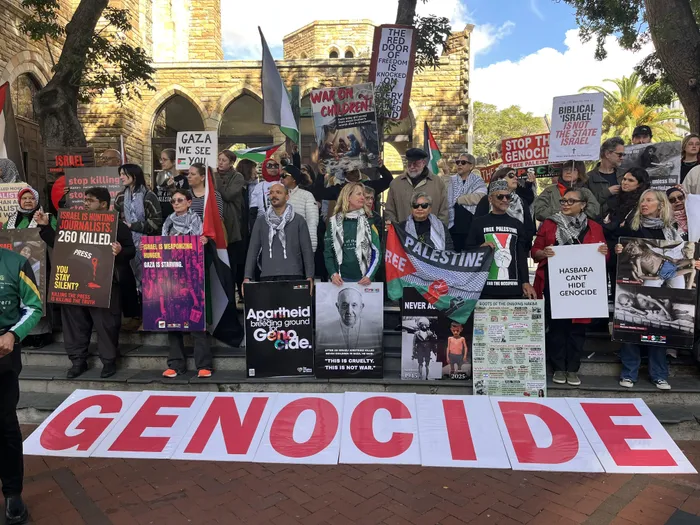
Journalists and activists during the 96 weekly protest in support of Palestine at St. George's Cathedral, in Cape Town, on Wednesday, August 13.
Image: Fouzia Van Der Fort
Journalists from across the city joined the 96th weekly vigil in solidarity with journalists in Gaza at St. George's Cathedral on Wednesday, August 13.
They honoured, grieved with, and stood in solidarity with Palestinian media workers.
The vigil came two days after five Al Jazeera staff members and two other individuals were killed in an Israeli strike on a journalist's tent outside Al-Shifa hospital.
Al Jazeera correspondents Anas al-Sharif, Mohammed Qreiqeh, cameramen Ibrahim Zaher, Moamen Aliwa and assistant Mohammed Noufal died.
Activist, writer, and creative Imam Omar said: "We understand the grief and pain of apartheid in South Africa, but we also understand the aftereffects of post-colonial spatial and economic inequity, and that is what connects us to Palestine today."
She said that the genocide in Gaza far exceeded what South Africans experienced during apartheid.
"We know the price of compromised freedom, so we support their struggle for full liberation as they have supported us in ours. Our struggles remain intertwined and interconnected," she said.
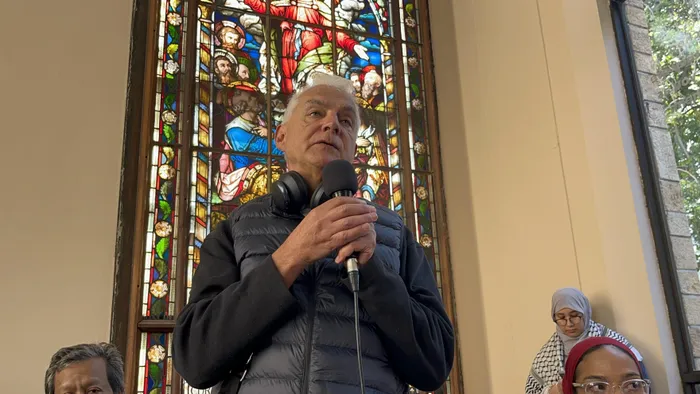
Journalist, author and researcher professor Guy Berger.
Image: Fouzia Van Der Fort
Journalist, author, and researcher Professor Guy Berger, reminded journalists of the UN Security Council resolution, adopted in 2015, which affirmed that journalists and media professionals are civilians in an armed conflict.
He said that Israel, as a member of the UN General Assembly, voluntarily associated itself with this resolution, but that it did not mean anything today.
"There should be justice for journalists who are attacked during conflicts. Journalists should be treated as civilians, and attacks on journalists during such situations should not go unpunished," he said.
"It is clear that the shame that should apply to a country that supported that resolution voluntarily doesn't go very far today. It is also clear that those principles need to be kept in account.
"We need to keep the receipts," said Mr Berger.
Prof. Berger was also among the journalists who were detained by the South African apartheid state for his commitment to press freedom.
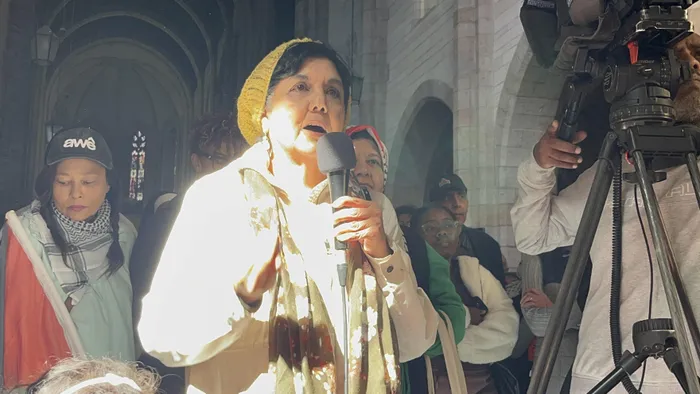
Journalist, author and activist Zubeida Jaffer.
Image: Fouzia Van Der Fort
Journalist Zubeida Jaffer said that journalists have to focus on what is happening here in "our country".
Ms Jaffer said there has been a concerted effort to derail pro-Palestinian media initiatives.
"If we support the Palestinians and we want the Palestinians to get out of this situation, then we can't allow our situation to deteriorate because then we are also gone."
She called on journalists and the public to be vigilant about what was happening in media entities, with specific reference to media house owners and the agendas they push.
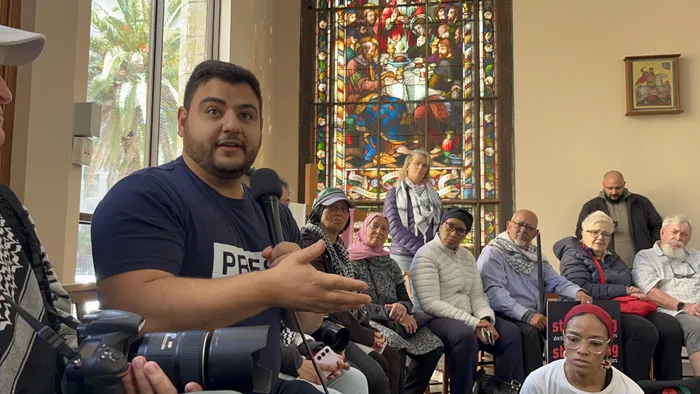
Palestinian journlist Aziz Younis.
Image: Fouzia Van Der Fort
Journalist Aziz Younis, of Palestinian descent, said that it was too late for journalists to only react now to the "genocide in Palestine".
"There is a fine line between activism and solidarity. After 60 000 Palestinians have died, after 270 journalists have been killed (since October 7, 2023). There is no line. It is important that we push for South African journalists and international journalists to do more. Showing up for a vigil is important, but it is not enough. You have to push on your chief editors and colleagues to do more, and push international media to be on the ground and prove that our colleagues who died, telling the truth they do not belong to any groups. They're not carrying any weapons, but they are telling the truth," he said.
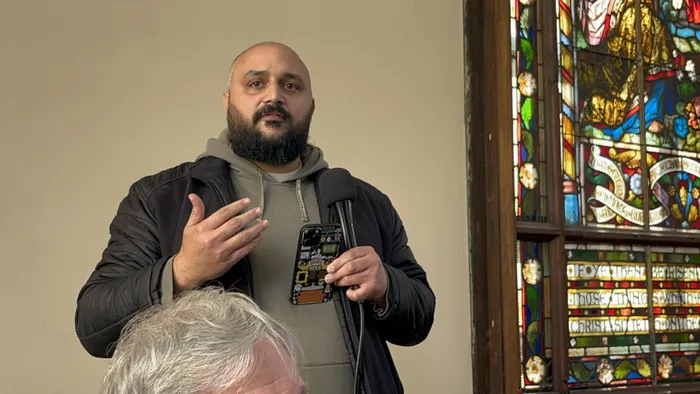
Palestinian journalist Sharif Mosa.
Image: Fouzia Van Der Fort
Palestinian journalist Sharif Mosa agreed with Mr Younis about crossing the red line.
He said that at every opportunity, Israel was crossing the line.
"Every time Israel crossed the red line in this genocide, it was just testing the waters, just testing the world's rage, and every time the world did nothing. They committed another act of violence. When we thought no one would ever bomb hospitals and kill children. They did it. When we thought they would never bomb churches or mosques. They did it. When we thought we would never see babies die because they cut off oxygen. They did it. When we thought there was no way they're gonna target and hunt journalists. They targeted them, their families, they hunted them. They killed them, terrified them, forced them to move, and the responsibilities on their colleagues became more because every time a journalist falls in Gaza, they feel responsible to carry the message," he said.
Mr Mosa called on journalists to "carry the message".
"Stop operating in comfort zones - in their companies, in their newsrooms or society because if a Palestinian journalist doesn't have a comfort zone, no journalist should," he said.
"It is time to do real action and real change," said Mr Mosa.